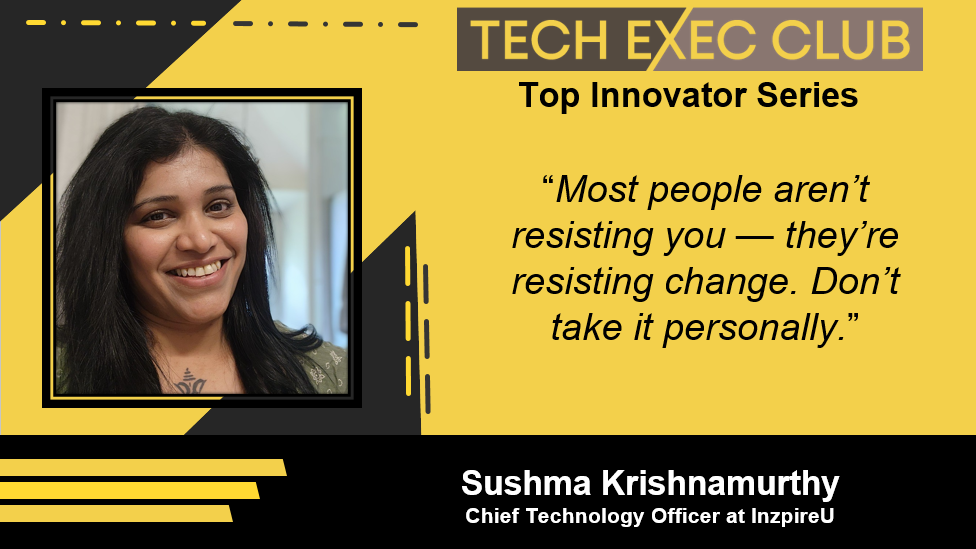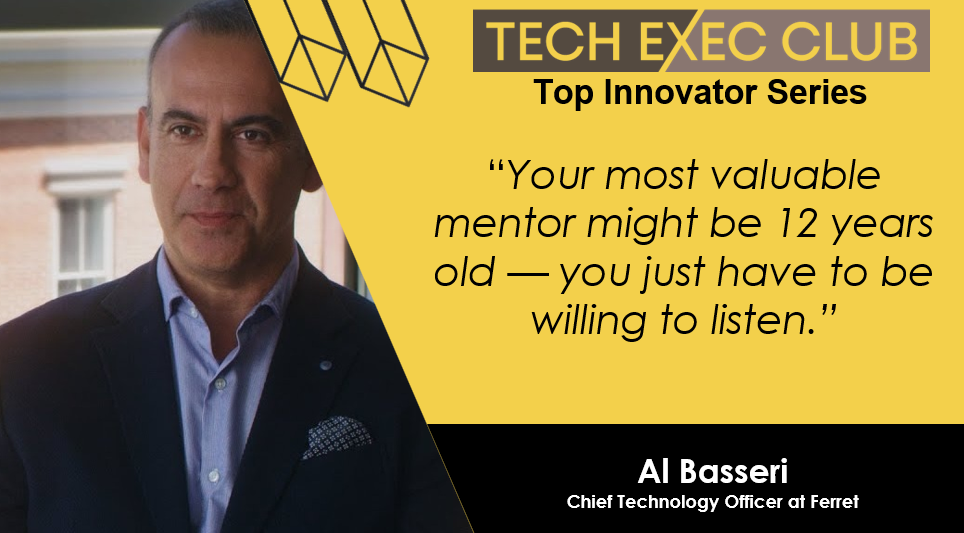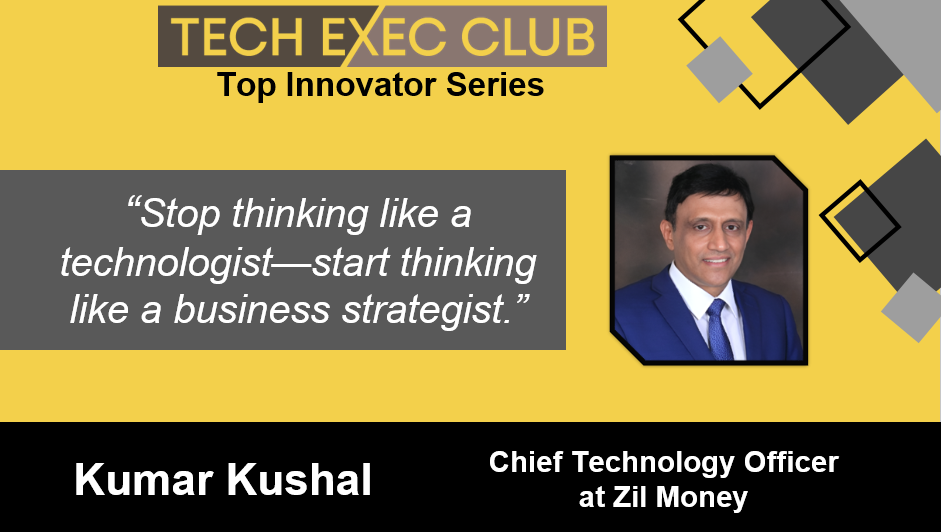Leadership is often portrayed as poise, control, and unwavering confidence. But for Sushma Krishnamurthy, CTO of InzpireU, real leadership is raw and human and often forged in moments of emotional intensity—sometimes even in a screaming session alone in the car.
As a seasoned technology executive driving digital transformation and AI innovation, Sushma has faced the resistance that change inevitably brings. She’s been called a backstabber for sharing performance data, accused of eliminating jobs simply to improve efficiency, and misunderstood because of her quiet, introverted nature. And yet, she shows up every day with a clean slate—emotionally reset, professionally focused, and deeply committed to leading with empathy, truth, and impact.
In this candid and refreshingly vulnerable episode of the Top Innovator Series, hosted by Josef Martens, Sushma opens up about the emotional complexities of leadership in tech. She shares how starting fresh each day, embracing facts over feelings, and owning her introversion have become cornerstones of her leadership style. She also reveals the next phase of her journey—a purposeful pivot toward mentoring others, amplifying women in tech, and building a legacy of impact.
Her story is a masterclass in self-awareness, resilience, and conscious leadership—one that proves that you don’t have to be loud to lead or perfect to make a difference.
Starting Fresh Every Day: The Power of Emotional Reset
Every day, for Sushma Krishnamurthy, starts from zero. It’s not a metaphor — it’s a coping mechanism, a discipline, and a leadership philosophy. In a career marked by high-stakes digital transformations and emotionally charged organizational change, she’s learned one truth: you can’t carry yesterday into today if you want to lead with clarity.
“In one of my previous roles, I was constantly being told I was taking people’s jobs away,” she recalls. “All I was doing was improving efficiency. But change is scary — and people personalize it.” That personalization didn’t stop with casual resistance; she was even accused of backstabbing simply for sharing data.
To survive and stay practical, she adopted a ritual — the daily reset. “A leader I worked with once told me he screams in his car, then walks back into the building like it’s a new day,” she says with a smile. She tried it — and it worked. “It was like I could offload all the emotion and start again.”
That discipline of emotional detachment has since become a leadership superpower for her. She doesn’t carry grudges, and she doesn’t over-identify with conflict. She protects her energy and perspective by reminding herself that most reactions to change are rooted in fear, not personal malice.
This isn’t just emotional intelligence—it’s emotional hygiene, and in Sushma’s world, it’s non-negotiable.
Leading with Data (But Not Losing the Human)
For a tech executive, facts are powerful tools. But for Sushma Krishnamurthy, they’ve also been double-edged swords. Throughout her leadership journey, she’s leaned heavily on data to drive decisions, assess team performance, and guide transformation. Yet, she quickly realized something: data may be neutral, but people are not.
“In my mind, I’m thinking — I’m just sharing what the numbers show. But for others, it can feel like I’m pointing fingers,” she explains. It’s a lesson she learned hard — when well-meaning, fact-based feedback was interpreted as personal criticism. The tension between radical candor and perceived attack is a leadership minefield.
So, Sushma has refined her approach. She still leads with data—it’s too essential not to—but she layers it with empathy. She makes space for people’s reactions, decouples emotion from feedback, and always asks: What’s the tone, timing, and context this person needs to hear the truth productively?
It’s a balancing act — especially as a woman in tech, where confidence is sometimes mistaken for aggression. But Sushma remains committed to the power of transparency. “Data helps me keep my calm. It helps me stay objective,” she says.
Her leadership style proves that truth and kindness aren’t opposites — they’re allies and create trust.
Learning to Let Go: Protecting Mental Wellness in a Demanding World
Sushma Krishnamurthy is clear about one thing: mental wellness is non-negotiable. It’s the lens through which she evaluates decisions, relationships, and how much of her energy to invest — or protect.
“If something impacts my mental peace, I drop it. Simple as that,” she says. That philosophy has helped her define boundaries in a world that often expects tech leaders to be everything, everywhere, all at once. It’s not just about stress management — it’s about strategic focus and emotional survival.
She knows who can access her: her inner circle, family, and deep relationships. Beyond that, she’s learned to opt out of toxic dynamics — even if that means walking away from unproductive relationships or professional environments.
And it’s not just about cutting people off. It’s also about choosing when to engage. “You can’t control others. You can only control your reaction,” she says. That realization, a turning point after age 35, shifted her leadership into a calmer, more intentional mode.
Now, she encourages others to do the same. “We think we need to react to everything. We don’t,” she says. “Pick your battles — and make sure you’re not losing yourself in the process.”
When Philosophy Meets Reality: The Leadership Gap in Founding Your Own Company
As a founder, Sushma finds herself laughing at and learning from her contradictions. “I used to preach scope control in every DevOps workshop,” she says. “Now I’m the one saying, ‘Hey, can we just sneak in one more feature?'”
Running her startup, InzpireU, has pushed her leadership philosophy into uncharted territory. The speed, the pressure, the client demands—they’ve tested every piece of wisdom she used to teach. As she leads product development while interfacing directly with customers, she’s learned just how hard it is to hold boundaries when they’re personal.
“There’s a different kind of vulnerability when you’re the founder,” she admits. “The stakes feel higher, and I don’t always stay calm. Sometimes I lose my cool.”
What’s most striking is her self-awareness. She doesn’t pretend to have mastered it — she’s still working on it. But she’s also honest about how building from scratch challenges your leadership in ways a corporate structure never can.
“You’re wearing all the hats. So, your discipline and your emotional control have to come from within. There’s no one else to regulate it for you.”
It’s a humbling reminder that leadership is not a destination — it’s a daily practice, especially when building something of your own.
Owning Introversion and Building Impactful Visibility
There’s a long-standing myth in business that great leaders are charismatic extroverts. Sushma Krishnamurthy is here to dispel that myth.
“I’m an introvert. Always have been,” she says. But that quiet nature — especially as a woman in tech — often led to misunderstandings. “People used to say I looked snobbish or unapproachable. But I wasn’t avoiding them. I like to observe before I speak.”
That misconception followed her throughout her career — until she decided to own it, name it, and empower others. The result? Her book Own Your Introversion is a powerful call to action for quieter leaders who want to thrive without pretending to be someone they’re not.
“I want people to understand that introverts bring value too — deep focus, empathy, clarity,” she says. “We just express it differently.”
Now, Sushma speaks more openly, shows up more visibly, and encourages others — especially women in tech — to embrace who they are, not who they’re told to be.
Her message is clear: introversion isn’t a weakness to overcome. It’s a strength to lead with.
Sushma’s leadership journey is a masterclass of self-awareness, resilience, and impact-driven decision-making. Her experience offers practical tools and mindset shifts that can help tech professionals, leaders, and aspiring changemakers navigate leadership without losing themselves.
1. Begin Every Day with a Fresh Mindset: Start each morning by emotionally resetting — yesterday’s setbacks don’t define today’s decisions. Use a ritual or mental tool (like reflection, movement, or even a car scream!) to release lingering frustration. Treat every interaction as new — don’t carry old conflict into new conversations.
2. Use Data, but Don’t Forget the Delivery: Lead with facts, not feelings — but be mindful of how others emotionally process those facts. Present data as a tool for improvement, not as a weapon for blame. Ask yourself: How do I make this truth land in a way that builds trust, not defensiveness?
3. Protect Your Mental Wellness at All Costs: Define your inner circle and prioritize the relationships that nurture your well-being. Avoid meetings, conversations, or commitments where you’re not adding or receiving value. Ask: Is this taking more energy than it’s giving? If yes, reevaluate your involvement.
4. Acknowledge the Gap Between Ideal and Reality: Leadership philosophies are easier to teach than to live — especially when you’re the founder. Notice when your behavior conflicts with your beliefs. Don’t judge — learn and adjust. Build in space for reflection so you can course-correct without burning out.
5. Embrace Who You Are — Especially If You’re an Introvert: Visibility doesn’t require volume. Share your thoughts in your way, at your own pace. Name your introversion and own it. When people understand your energy, they’ll meet you where you are. Use tools like writing, small-group dialogue, or one-on-one mentoring to lead authentically.
6. Focus on Impact, Not Just Achievement: Shift from personal success to community impact. Ask: How can I give back what I’ve learned? Mentor women and underrepresented voices in tech. Build platforms — not just products — that enable others to thrive.
Sushma Krishnamurthy is not just a CTO. She is a force of quiet clarity — a leader who navigates the complexities of transformation with empathy, grit, and unapologetic self-awareness. From steering large-scale digital change to building her AI-driven mentorship platform, her leadership is profoundly human and strikingly data-driven.
What sets Sushma apart isn’t just her technical brilliance—it’s her emotional intelligence. She starts each day fresh, leads with facts without forgetting feelings, and proudly owns her introversion. She’s not chasing applause—she’s building alignment, nurturing trust, and creating real change.
As she looks ahead to the next phase of her journey — one focused on impact, mentorship, and community upliftment — Sushma is redefining what leadership in tech looks like. Not loud. Not performative. But grounded, generous, and profoundly practical.
For anyone who’s ever felt like they had to choose between competence and compassion, logic and empathy, ambition and wellness, Sushma shows that you can lead with all of them.
She’s not just building platforms; she’s building people, and that might be the most innovative thing of all.
Want to hear Sushma Krishnamurthy’s insights firsthand? Watch the full, live podcast interview [click here]





